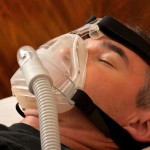 Sleep apnea seems to be a growing problem in the US.
Sleep apnea seems to be a growing problem in the US.
This point was hammered home for me when my sister-in-law came to visit. Passing by the guest room on my way to bed one night I could hear the unmistakeable sound of a CPAP machine running.
And she’s not alone.
My cousin Dee uses a CPAP machine as well.
Sleep apnea and obesity
In the case of my sister-in-law and cousin they are definitely not obese.
Nor do they have any issues with weight (as far as I know). However, doing a bit of research online I discovered that there is a link between obesity and sleep apnea. Now, I don’t know about you but this came as a surprise to me.
In fact, just a few years ago I never even heard about sleep apnea, and truth be told didn’t know what it meant when I heard the term.
To put it simply, sleep apnea involves airway obstruction while you sleep. This sometimes leads to snoring, and in severe cases more serious health risks like a cessation in your breathing, low oxygen levels in your blood and an increased risk of heart attack or stoke.
There are a few side effects as well, such as interrupted sleep patterns and drowsiness during the day.
So clearly it’s not something to be taken lightly.
Now, you might be wondering if there’s a link between sleep apnea and obesity. Recent studies have shown that there seems to be a direct link to the rise in prevalence of obesity and the rise in the number of cases of sleep apnea. Perhaps it is related to changes in a person’s metabolic rate and system when someone gains too much weight.
Whatever the link, it seems to be the case that obstructive sleep apnea is more common in people who are obese.
But there’s more to the connection as well.
People with sleep apnea tend to eat more, possibly because of poor sleep pattens and a disrupted metabolic system.
In fact, there seems to be a relationship between hunger and satiety hormones and sleep deprivation, though the exact nature of this relationship is unclear. What this means in non-technical jargon is that the link between feeling hungry and feeling satisfied seems to get disrupted or thrown off balance when people have sleep apnea, causing them to eat because they “feel hungry.” even after eating.
Sleep apnea treatments
Are you concerned about whether or not you have sleep apnea?
The first step is to contact your doctor. In fact, there are a number of practices that specialize in treating sleep apnea.
Additionally there is some good news.
Traditional treatments may involve wearing a CPAP mask at night (like my cousin and sister-in-law).
As sleep apnea relates to obesity recent studies have shown that even modest weight loss improves obstructive sleep apnea (the more dangerous form of sleep apnea). Which means when it comes to alternative therapies or treatments to address the underlying causes you have a lot of alternative tools at your disposal, such as improved diet, exercise, and other forms of therapy like hypnosis or acupuncture.
The bottom line?
Sleep apnea is no laughing matter.
Talk with your doctor about sleep apnea at your next checkup, because there are serious health-risks that should not be overlooked. And modest weight loss can help to improve obstructive sleep apnea should you find that you have it.